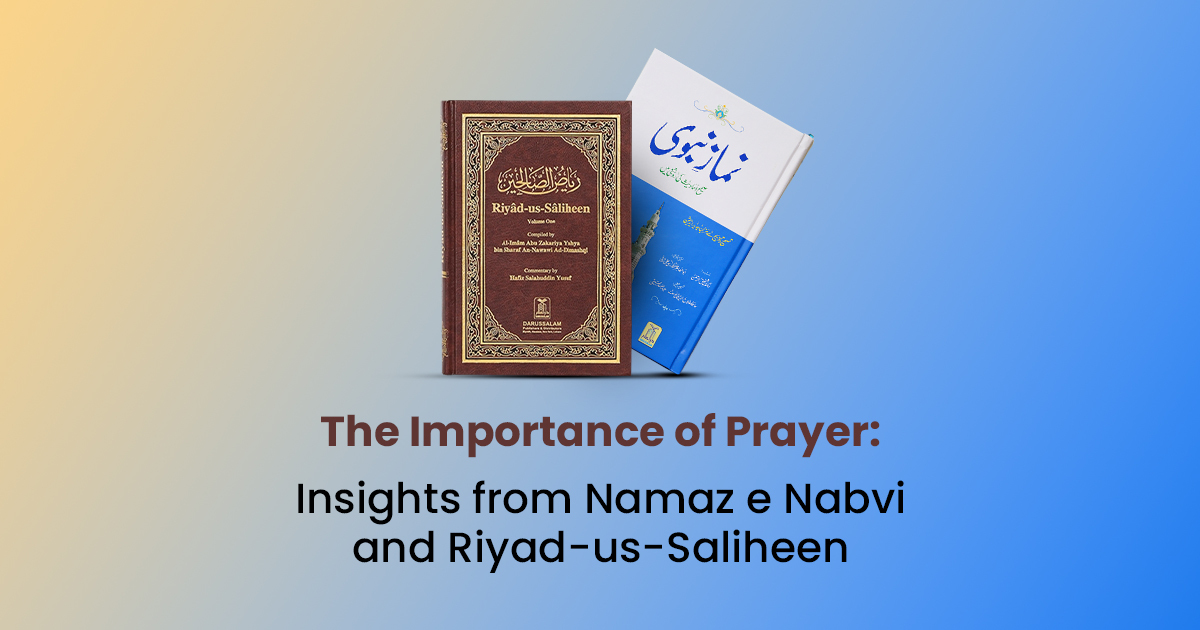Allah created man from clay and then put a soul in it from His side. The present condition of man has been brought about by the union of the clay and the soul. When a person dies, the soul is taken away by the angel of death and the clay body is buried to join the clay again, which will be resurrected by the command of Allah before the Day of Judgment. That is why a person has two types of illness, anxiety, pain and weakness.
1. Physical
2. Spiritual
Therefore Allah almighty has created cures for both types of human diseases. The prophet said:
لِكُلِّ دَاءٍ دَوَاءٌ، فَإِذَا أُصِيبَ دَوَاءُ الدَّاءِ بَرَأَ بِإِذْنِ اللهِ عَزَّ وَجَلَّ۔(صحیح مسلم:2204)
There is a remedy for every malady, and when the remedy is applied to the disease it is cured with the permission of Allah, the Exalted and Glorious.
The human body is made of soil, so its medicine is also produced from soil. In today’s era, all the medicines that are being used in the treatment of the human body are extracted from soil and prepared in the lab. After a detailed work, the present shape came out.
While the soul has been sent by Allah from the sky and His medicine has also been sent down from the sky. When a person is attacked by Satan and he abandons obedience to Allah and starts following Satan, then he has a spiritual disease. Allah Almighty has revealed the cure for all spiritual diseases from himself in the form of Quran and Hadith. When a person recites the Qur’an and Hadith and follows their teachings, his all spiritual diseases are removed with Allah’s ordered.
Allah Almighty has mentioned in the Qur’an and Hadith many acts of worship that heal a person spiritually. And modern science has proved that by performing these rituals, a person also recovers from physical ailments.
For example Fasting is a great means of healing from spiritual diseases and attaining piety and modern science after its deeply research, is forced to say that fasting is the best way to cure a person from major dangerous physical diseases like blood pressure, diabetes, cholesterol and many mental diseases.
Importance of Salah:
Prayer has greatest importance in Islam, the observance of prayer is strongly emphasized and severe punishment is promised to those who skip it without a valid reason. Allah almighty has mentioned the establishment of Salah in many verses of Quran, some of them are in the following:
وَأَقِيمُوا الصَّلَاةَ وَآتُوا الزَّكَاةَ وَارْكَعُوا مَعَ الرَّاكِعِينَ
1. And establish prayer and give zakah and bow with those who bow [in worship and obedience. (Surah Baqrah: 43)
وَأَنْ أَقِيمُوا الصَّلَاةَ وَاتَّقُوهُ وَهُوَ الَّذِي إِلَيْهِ تُحْشَرُونَ
2. And to establish prayer and fear Him.” And it is He to whom you will be gathered. (Surah Al-Anaam: 72)
وَأَقِيمُوا الصَّلَاةَ وَآتُوا الزَّكَاةَ وَمَا تُقَدِّمُوا لِأَنْفُسِكُمْ مِنْ خَيْرٍ تَجِدُوهُ عِنْدَ اللَّهِ إِنَّ اللَّهَ بِمَا تَعْمَلُونَ بَصِيرٌ
3. And establish prayer and give zakah, and whatever good you put forward for yourselves – you will find it with Allah. Indeed, Allah of what you do, is Seeing. (Surah Baqrah: 110)
وَأَقِيمُوا الصَّلَاةَ وَبَشِّرِ الْمُؤْمِنِينَ
4. And establish prayer and give good tidings to the believers. (Surah Younas: 87)
The importance of prayer has also been emphasized in the hadiths of the Messenger of Allah. After becoming a Muslim, the first duty upon a person is prayer, rather it is considered one of the pillars of Islam. The Messenger of Allah said: “There are five basic pillars of Islam and prayer is one of them”. (Sahih Bukhari: 8)
Explaining the importance of prayer, the Messenger of Allah PBUH said that “a person who refuses to offer Salah despite accepting Islam, then his Islam has no validity”. (Sunan Abi dawud: 4678)
Prayer is not excused under any circumstances. Even if the prayer is missed due to some compulsion, it is ordered to perform it immediately when there is time. If a person is unable to pay standing up, then he is allowed to sit and offer. The Messenger of Allah PBUH said:
Pray standing, but if you are unable, do it sitting; and if you are unable to do that, do it lying on your side. (Sahih Bukhari: 1117)
In view of the importance of prayer, Shariah has ordered that you should attract your children to prayer from childhood The Prophet PBUH said: “Command your children to observe prayer when they are seven years old, and beat them for [not observing] it when they are ten years old, and do not let [boys and girls] sleep together”. (Sunan Abi Dawud:495)
By considering the above Qur’anic verses and hadiths, we know very well how much importance Islam has given to the observance of prayer and how severe the punishment for refusing it or laxity in its performance has been.
Salah a spiritual treatment:
When a person leaves the path of Allah and follows the Satan He falls into many spiritual diseases. By not repenting in time and coming to the path of Allah, the human soul is badly injured. If he dies in this condition, he becomes entitled to hell. Islamic Shari’ah has given many ways to treat this injured soul, among them the “prayer” is the best way for spiritual treatment. Here are some spiritual diseases from which a man can get rid by establishing 5 prayers a day. In Sha Allah
1. Lackness of piety:
All spiritual diseases are caused by a person’s lack of piety. Due to the decrease of trust in Allah Almighty, a person becomes involved in various sins; even sometimes a person commits a very dangerous sin like shirk. Prayer is the reason for man to increase his piety and be close to Allah and trust with him. Allah Almighty said in the Holy Qur’an:
This is the Book about which there is no doubt, a guidance for those conscious of Allah. Who believe in the unseen, establish prayer, and spend out of what We have provided for them. (Surah Baqrah:2-3)
In these two verses, one of the signs of those who adopt piety is that they establish prayer. That means, by performing the prayer, piety increases, and by leaving the prayer or getting laziness to offer it, a person suffers from a lack of piety, which is the biggest spiritual disease.
Committing obscenity and lewdness:
Obscenity and indecency is a spiritual disease due to which a person also suffers from many physical diseases. This disease also affects a person when he starts walking away from the path of Allah and follows the path of Satan. The treatment of this disease has also been prescribed by Allah to establish prayer. So Allah Ta’ala said:
And establish prayer. Indeed, prayer prohibits immorality and wrongdoing. (Al-Ankaboot: 46)
The meaning of the above verse of Quran is that by establishing prayer, a person becomes closer to Allah and the disease of obscenity and indecency caused by Satan is removed.
Freedom from shirk:
Shirk is such a dangerous spiritual disease that no good deed of a person is accepted. If a person establishes prayer and ponder on the supplications recited in prayer, he is freed from shirk by the grace of Allah. Allah Almighty said:
[Adhere to it], turning in repentance to Him, and fear Him and establish prayer and do not be of those who associate others with Allah. (Surah Rum: 31)
Towheed (Believing Allah as one) and condemnation of Shirk are described in all the prayers of the Salah. When a person offers the prayer attentively, he will definitely feel disgusted with shirk and he will refrain from this sin.
Deliverance from evil deeds:
Starting to do bad deeds is a very dangerous spiritual disease with which a person sinks in the mire of sins. As the result the thoughts of repentance and good deeds stop coming to him. If a person starts praying regularly, surely he will gradually get rid of all his sins. Allah Almighty said:
Alif, Lam, Meem. These are verses of the wise Book. As guidance and mercy for the doers of good. Who establish prayer and give zakah, and they, of the Hereafter, are certain [in faith]. Those are on [right] guidance from their Lord, and it is those who are the successful. (Surah Luqman:1-4)
In these verses, the special sign of the Muhsinon (doers of good deeds) is that they establish prayer. Means the blessing of establishing prayer is that In these verses, the special sign of the Muhsinon (doers of good deeds) is that they establish prayer. Means the blessing of establishing prayer is that a person starts performing good deeds and stops doing bad deeds with Allah’s mercy.
Deliverance from spiritual impurity:
Spiritual impurity is a dangerous disease that does not allow peace of mind despite all the things in the world. Satan keeps creating thoughts in his heart to commit various sins. Whereas by establishing prayer, a person attains spiritual purity, Allah Almighty said:
And establish prayer and give zakah and obey Allah and His Messenger. Allah intends only to remove from you the impurity [of sin from your soul], O people of the [Prophet’s] household, and to purify you with [extensive] purification. (Surah Ahzab:33)
This verse explains that Allah has given some advices to the Prophet’s wives to attain complete spiritual purity. The command includes the Prophet’s wives as well as the entire ummah until the Day of Judgment, and among these advices is also the establishment of prayer. It seems that by establishing prayer, a person attains spiritual purity, after which Satan’s attacks do not affect him. In Sha Allah
A few spiritual diseases have been mentioned in the above lines, while in the Qur’an and Hadith there are mentions of many such spiritual diseases from which a person can be cured by establishing the prayer. For example freedom from sins, lack of blessings in sustenance, protection from jinn and magic, treatment of evil eye, protection from the punishment of the grave and relief from the hardships of the Day of Judgment, etc. The treatment of all these spiritual diseases has been told to establish the Salah 5 times in a day. In Sha Allah
Salah a physical treatment
In the above lines, the spiritual benefits of prayer are discussed and hundreds of books have been written on this topic in different languages of the world. Modern science after conducting its research on the complete method of prayer has proved that prayer has many physical benefits as well. That is, if a person prays daily regularly 5 times a day, he is protected from psirtual disease as well as from many physical diseases. Details are below:
Prayer, A light exercise & a source of fitness:
Namaz involves continuous gentle muscle contraction and relaxation with perfect harmony and balance. These gentle & simple exercises are suitable in all weathers for all ages & conditions. Prof Dr Wan Azman Wan Ahmad Cardiology Consultant Specialist University of Malaya Medical Centre (UMMC) stated that “12 ‘Rakʿah’ (unit for a set of actions in a prayer) equaled to 30 minutes of light exercises daily as recommended by health experts.” (zurairifm.wordpress.com/2009). The various postures of Salah were studied and research proves that each part of the prayer has its own physical benefit, which is achieved by each person performing the prayer.
A study done on the energy cost of two and four Rakʿah prayers, found that Salah has a positive effect on metabolic function. For an 80 kg person, the energy cost of daily prayers was about 80 calories per day, and could be considered a form of physical activity that enhances fitness. Meaning that if someone performs his prayer more comfortably; this ratio will increase in him. In Sha Allah
Overall Cleanliness and Hygiene
One of the greatest benefits of the daily Salah is the overall cleanliness and purity. The cleanliness is called half faith in Islam because it keeps you in a constant state of purity. Before every Salah, a Muslim must perform ablution, which is cleansing of the mouth, nose, face, ears, hands, arms and feet. Staying in a constant state of cleanliness leads to healthier skin and an overall healthy hygiene. It rids one of germs, allergens and various forms of infections and diseases, which are caused by poor hygiene.
Blood Circulation improvement:
The different positions during the Salah help in improving the overall blood flow in the body. People have a lot of issues when it comes to blood pressure. The Salah movements help in regulating the blood flow to all parts of the human body. For example During the Ruku position, blood flow is regulated in the upper body and during Tashahhud, the blood flow in the lower body is regulated.
Improvement of the digestive system:
According to scientific studies, the Salah also helps in digestion of the body. For example, during the “Qa’ada” state. The posture is such that it enables and facilitates digestion it improves liver functions and relaxes the intestines, which in turn facilitates bowel movement in the body. Salah can also help alleviate cases of constipation and overeating.
Note: Qa’ada means sitting down with one foot curled underneath,
Relief from muscle pain:
Sajdah allows the postural neck muscles to be activated in order to control the neutral head position in lowering down, and while lifting it from the floor. The hands are also stretched out in a manner that allows the forearm as well as the arm muscles to bear weight. The toes, entire vertebral column and upper and lower spinal muscle experiences a stretch. It helps in reducing muscle pain.
Cardiovascular Health:
Salah is also a form of exercise and it increases a person’s metabolism, which basically improves a person’s overall cardiovascular health. Every Salah that you offer in 5 times in a day is similar to exercising on a daily basis which improves the overall functioning of the organs in the body and regulates the secretion of glands and blood flow in the body.
Yoga (Prevent thoughts from dispersing)
Yoga has now become an international exercise for mental relaxation. People all over the world take admission in special institutions to do this exercise. In yoga, the mind is trained to get rid of all kinds of thoughts which give a lot of comfort to a person.
Prayer also just like yoga, teaches a Muslim to forget the thoughts of the world and focus only on Allah, thus only by performing Salah five times a day, very easily a Muslim can get rid of mental diseases.
Important Note: A person can derive spiritual and physical benefits from prayer only when he performs it in accordance with the teaching of Sunnah. Remember that the Shariah has ordered the establishment of prayer and this is only possible when the Sunnah is observed in all parts of the prayer. The meaning of all the supplications recited in the prayer should be kept in mind and every part of Salah should be offered with utmost satisfaction and comfort. One thing should be kept in mind that the prayer not offered according to the Sunnah is not accepted by Allah.
Conclusion:
After all the above details, we come to the point that prayer is not only a means of spiritual purity and closeness to Allah for a Muslim, but it is also a very beneficial practice in physical sense. A person who makes it a habit to pray five times a day will get forgiveness of sins and earn good deeds as well as save himself from many physical diseases. Both the worlds benefit from fulfilling the order of Allah Almighty.
Therefore, every Muslim should learn to pray and perform it five times a day. There are hundreds of books in the market about prayer according to Sunnah. Darussalam has also published an excellent book on the subject of Namaz, by reading which a person gains in-depth knowledge of all the parts of Namaz, prayers, manners, rewards and timings etc.
A brief introduction to Namaz e Nabvi:
Namaz Nabawi is a very good book on the topic of prayer published by Darussalam. This book gets uniqueness from all other books due to some specialties printed on that topic; some of them are in the following:
1. A reference to each hadith attached
2. Use only authentic Ahadiths
3. Detailed discussion on all the issues related to Namaz
4. Explanation of all part of Namaz with pictures
5. A details of all supplication recited in each part of the prayer
6. Easy translation of all Arabic phrases
7. Explanation of difficult terms
8. International printing standard
And much more……
So!!!
Buy this book for yourself as soon as possible and get all the authentic information about Namaz and start offering it five times a day. Of course, you will get all its spiritual and physical benefits described in the above lines, which will help you recover from all spiritual and physical diseases. In Sha Allah
If you want to present an excellent and priceless gift to someone, then this book is the best thing for that purpose, because when he starts following the teaching given in this book after reading it, it will be the best Sadqa Jaria for you. So order this book for yourself as well as gift and encourage others to buy it.





